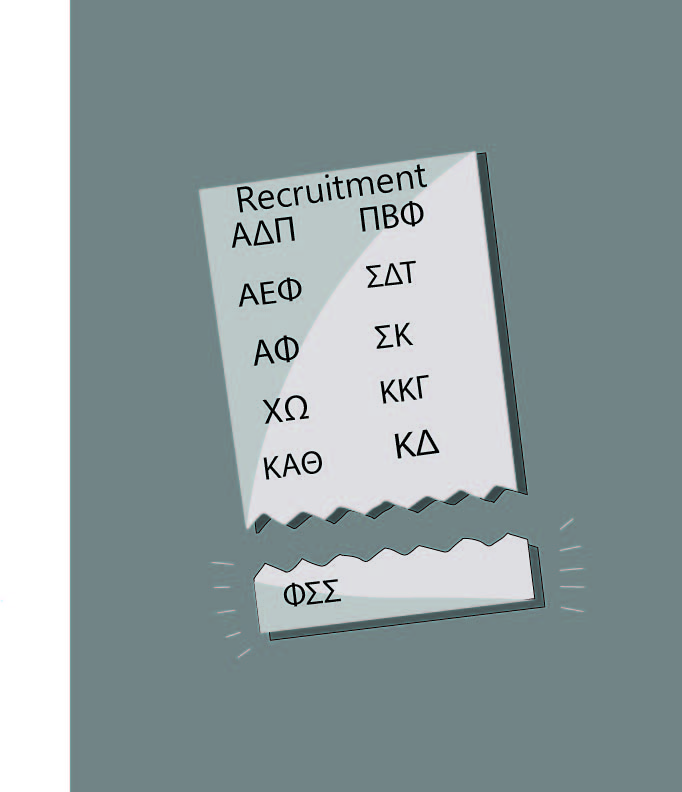One sorority did not get to partake in the buzz and hype of sorority recruitment and bid day on the National Mall this year. Phi Sigma Sigma withdrew from the process on the first day of recruitment, leaving many people outside of the Panhellenic Association with unanswered questions about the chapter’s future.
What goes around comes around, and Phi Sigma Sigma is paying the price for its former president’s racist Snapchat last semester. But seeing that the chapter was unable to continue with recruitment showed a change different from the diversity trainings and discussions all Panhel sororities were required to attend in the fall.
Sororities head into recruitment with the sole purpose of garnering more members. But Phi Sigma Sigma knew it could not take in the members it needed for a successful process, demonstrating that students may have not wanted to be part of a sorority with a racist past. Choosing to leave recruitment is both a sign that potential new members did not want to be part of Phi Sigma Sigma and an example of what happens to an organization that develops a reputation for allowing racism.
Sororities are supposed to foster an environment in which women feel that they are part of a family. But Phi Sigma Sigma has hindered that goal and prevented potential new members from believing that they can take part in an inclusive organization. There is nothing more isolating than feeling like you are a part of an organization that allows or condones racist or unethical actions, and potential new members likely saw that concern during the recruitment process.

Hannah Thacker | Cartoonist
On the heels of two racist incidents over the past couple of years, officials and student leaders have pushed diversity to the forefront of the University. By now, values of diversity and inclusivity should be ingrained in all students’ minds, and Phi Sigma Sigma’s departure is a reflection of the direction the University should be heading. Potential new members may have not wanted to preference Phi Sigma Sigma because they do not stand for racist behavior. This shift in attitude is a step in the right direction for both sororities and new members, and sororities should continue to promote inclusivity to ensure another insensitive event does not happen again.
The sorority’s removal also sends a message to sororities about the consequences of their actions. There is no tolerance for organizations with problematic histories, and Panhel should continue working to ensure they do not need to pay for the actions of another sorority member. The University is continuing to promote a culture of inclusivity, and sororities need to move in the same direction.
For Phi Sigma Sigma, withdrawing from recruitment can give the chapter time to rebuild its relationships with members of the GW community. Instead of welcoming new members, the chapter can use the semester to make amends with communities it hurt. Phi Sigma Sigma needs to make it clear to the community that while they were represented by someone who showed racist behavior, they are moving forward with steps that will prevent any incident from happening again.
Taking a chapter out of the recruitment process may look like a hit for Panhel, but it does not need to be. Phi Sigma Sigma’s removal is a sign that students do not tolerate racist behavior and a lesson for other sororities that they will pay for their actions. If Phi Sigma Sigma wants to remain on campus and get new members in the future, they need to show growth and a commitment to reforming the internal culture of the sorority.
Hannah Thacker, a sophomore majoring in political communication, is The Hatchet’s contributing opinions editor.


